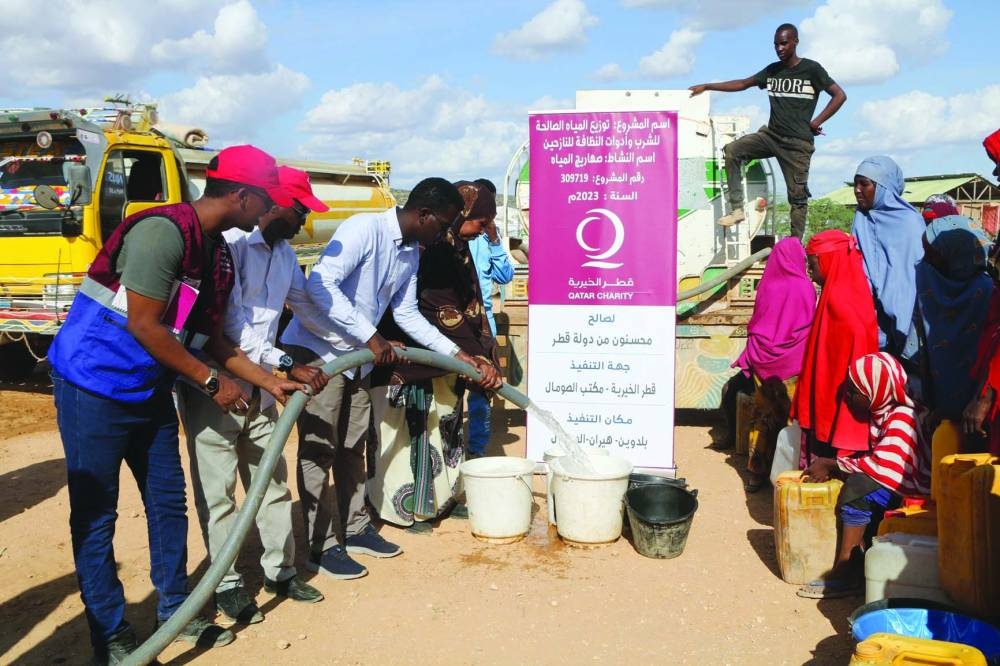Qatar Charity (QC) has begun providing urgent relief to the residents of Beledweyne city, the capital of Hiran region in the Hirshabelle state of Somalia, which was badly affected by a major flood. Local officials and those concerned with relief affairs in Somalia expressed their appreciation to QC, which was the first humanitarian organisation to deliver relief to the affected.
QC's aid includes providing safe drinking water daily to 652 displaced families. In the coming days, it will launch mobile clinics to provide health services, distribute personal hygiene kits, and build toilets. Director of Qatar Charity's Somalia office, Abdulfatah Adam, said that QC's field teams arrived in the field to assess the humanitarian situation in the city and the conditions of displacement camps outside it, in addition to distributing potable water.
He added the initial assessment of the situation showed the urgent need for clean water. He pointed out that QC's response will include all necessary sectors to help those affected so that they can return safely to their homes. The Commissioner of Somali Disaster Management Agency (SoDMA), Mahamuud Moallim, said: "We thank Qatar Charity, which made us happy with its urgent intervention to help the affected in Beledweyne. We have worked with it in more than one place in Somalia, and today it is implementing relief projects."
Beledweyne Mayor Nadar Tabah Maalin said: "We will do everything we can to deal with the repercussions of the floods. Our city has been plagued by floods, despite all the efforts that have been made to prevent the water from reaching the city's residents, but its level was more than expected and many dams and barriers were built."
She added that QC, as usual, was the first humanitarian institution to provide much-needed services to the displaced, thanking Qatar and QC for helping the flood victims and the deprived. Vast areas have been inundated which displaced 90% of the population of Beledweyne (nearly 250,000 families), according to SoDMA.
The floods caused massive damage to clinics, schools, and sanitation facilities, and affected markets and food stores, leaving the population in dire need of emergency shelter, food, water, and sanitation.

QC's aid includes providing safe drinking water daily to 652 displaced families.

QC's aid includes providing safe drinking water daily to 652 displaced families.
